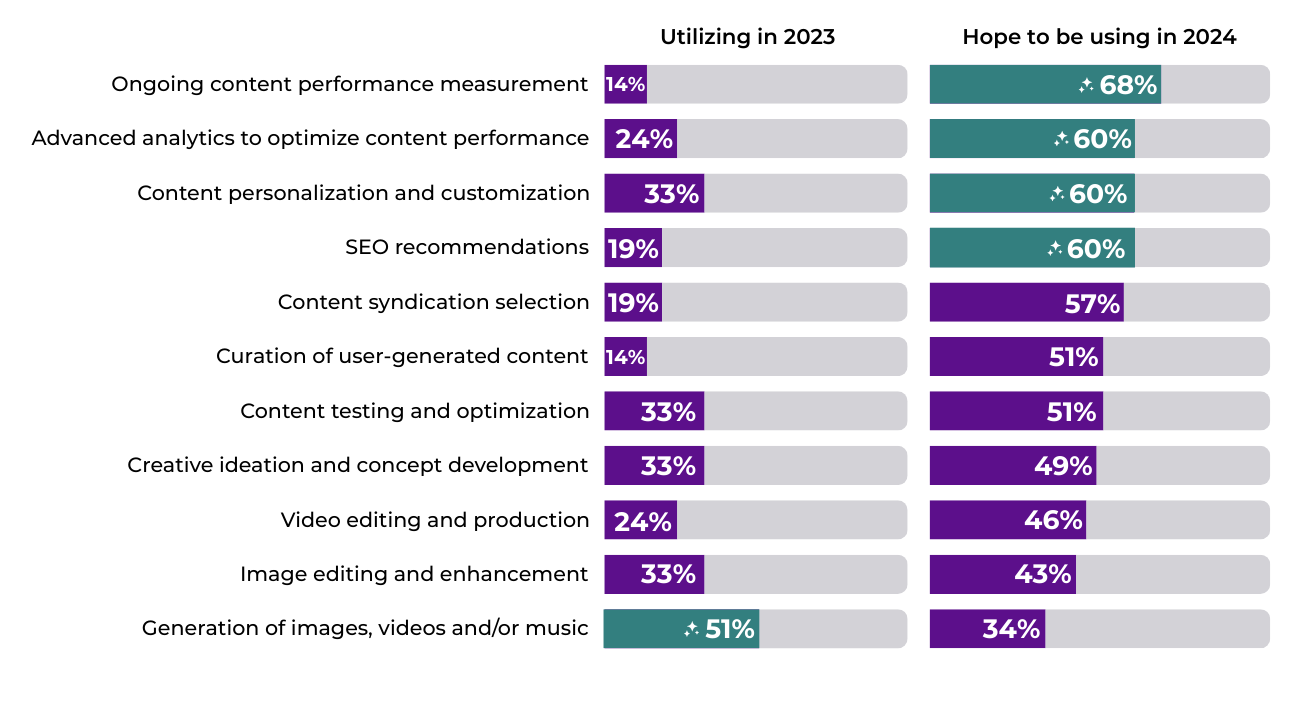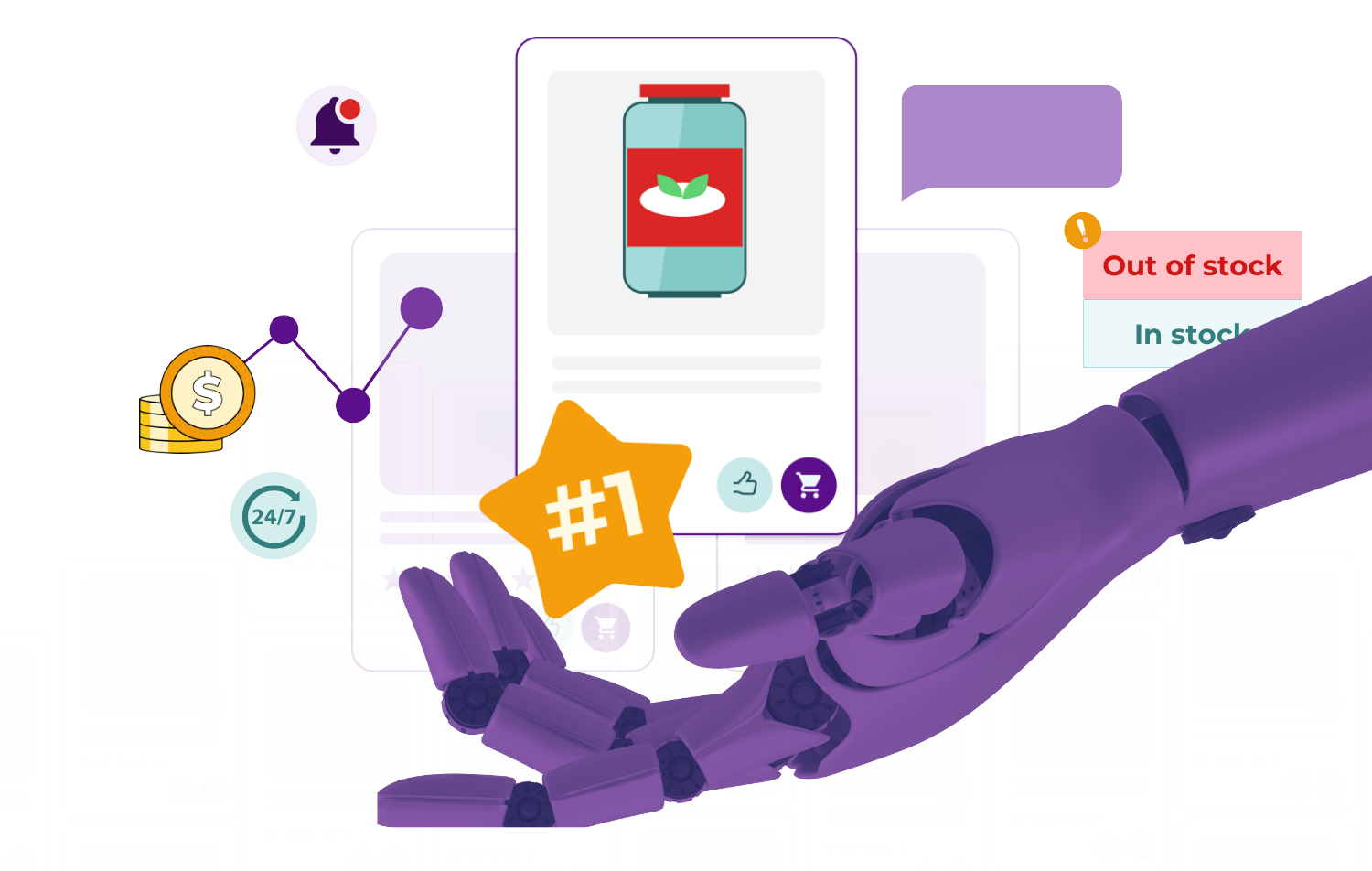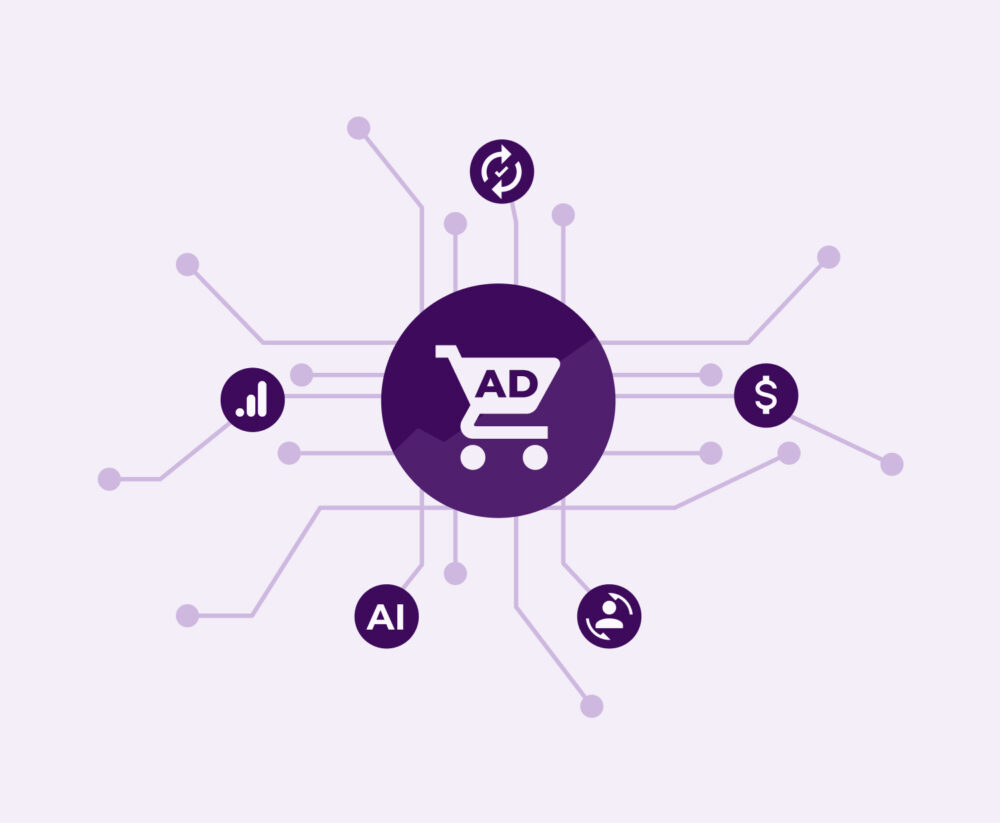The Role of Artificial Intelligence in Transforming the Digital Shelf
Evolving the Digital Shelf
In the fast-paced world of e-commerce, the concept of the Digital Shelf has become an essential pillar for brands and retailers. This term refers to the way products are presented and managed on online platforms, encompassing everything from visual presentation and product information to marketing and pricing strategies. With the increasing digitisation of commerce, the Digital Shelf has evolved from an extension of physical shop windows to become the main battleground for attracting and retaining consumers.
In this context, Artificial Intelligence (AI) has emerged as a powerful tool that can significantly transform the management and optimisation of the Digital Shelf. AI is revolutionising the way businesses approach e-commerce.
According to the study “AI in content creation” conducted by Vizit x P2PI in July 2023, a change is expected in 2024 in the way brands use AI. Businesses will move from relying heavily on Generative AI to create and optimise their content, to looking to machine learning models to bolster their ability to test, improve and measure the performance of their content, thanks to AI Analytics. This change is driven by the learning curve of everything AI can offer us. As we ask ourselves questions about what we can do and measure with AI, we find answers that help us to further develop possibilities.
Use of AI tools/services in 2023 vs. 2024

Note: the answers “None of the above” and “I don’t expect to use any AI tools” (with 6% each) are not shown.
Source: Vizit x P2PI AI in Content Creation Study, July 2023
In this article, we will explore the key reasons why AI is fundamental for the Digital Shelf, as well as its specific applications and the benefits it offers.
7 reasons why it makes sense to use Artificial Intelligence on the Digital Shelf
1. Boosting product recommendations and personalisation
One of the most visible applications of AI on the Digital Shelf is personalisation. Machine learning algorithms can analyse user data, such as their behaviour, or purchase preferences, to offer highly personalised product recommendations. This capability not only improves the customer experience by offering relevant products, but also increases the likelihood of conversion and customer loyalty. For example, platforms like Amazon use AI-powered recommendation systems to suggest complementary or similar products, driving additional sales.
2. Supporting or creating a customer service team
Customer service is a crucial component of the online shopping experience. AI-powered virtual assistants can provide quick and accurate answers to customer queries, reducing waiting times, 24 hours a day. Furthermore, these systems can learn from each interaction to continuously improve their responses and solve more complex problems. This not only improves customer satisfaction, but also frees up human resources to focus on more strategic tasks.
3. Detecting fraud better
E-commerce is exposed to a variety of risks, including fraud and malicious activity. Artificial Intelligence is an effective tool for detecting unusual patterns and signs of fraud, analysing large volumes of data in real time. AI-based systems can identify suspicious transactions or anomalous purchasing behaviour, allowing companies to take preventive actions quickly. This not only protects the company’s revenue, but also ensures consumer confidence in the brand.
4. Managing inventory effectively
Inventory management is another critical aspect where AI can make a big difference on the Digital Shelf. Algorithms can predict product demand more accurately, based on factors such as market trends, seasonality and customer behaviour. This allows businesses to optimise their inventory levels, reduce storage costs and minimise the risks of overstock or under stock. In addition, Artificial Intelligence can automate product reordering, ensuring that popular products are always available to customers.
5. Optimising prices
Pricing is one of the most dynamic strategies in e-commerce, and here Artificial Intelligence can also be a valuable ally. AI-based dynamic pricing systems can adjust prices in real time, responding to factors such as market demand, competition and economic conditions. This capability allows businesses to maximise their profit margins while remaining competitive in the market. In addition, AI would help to identify the optimal price for different customer segments, personalising offers to maximise sales.
6. Creating product content at scale
Product content and its optimisation, including descriptions, images and reviews, is essential for presentation on the Digital Shelf. AI can automate the creation and management of this content, generating attractive and accurate product descriptions, enhancing images with image processing techniques and analysing customer reviews to extract useful information. This ability to produce content at scale and with high quality is especially valuable for companies with a large product catalogue.
7. Prescribing actions to people on different teams
AI can prescribe actions to people on different teams by integrating all the context and analysing the vast amount of data available on the Digital Shelf. For example, algorithms can identify sales trends and consumer preferences. And then suggest specific marketing strategies to the marketing teams, such as adjusting advertising campaigns or launching promotions targeted at certain segments.
At the same time, it can provide sales teams with recommendations on which products to push based on emerging purchase patterns. For the logistics team, AI can suggest inventory adjustments, such as the need to restock popular products or reduce stock of low-demand products. This optimizes the supply chain.
In this way, AI offers practical and specific recommendations that align the strategies of different teams with the needs and behaviours of consumers.

How to optimise the Digital Shelf with Generative AI?
Generative AI, a branch of artificial intelligence that focuses on creating new content from existing data, has revolutionised the way businesses optimise the Digital Shelf. This technology allows the creation of three-dimensional product models or simulations of packaging, which can be integrated into online sales platforms to offer a more immersive shopping experience.
In addition, Generative AI can help businesses experiment with different product page designs, content variations and marketing strategies, allowing A/B testing at scale to determine the most effective combinations. This ability to generate and test content quickly and efficiently has been crucial in an e-commerce environment where consumer trends and preferences can change rapidly.
But, as we mentioned at the beginning of this article, thanks to the enormous learning that companies are doing about how to take advantage of it, Generative AI is giving way to other AI functionalities to conquer the Digital Shelf.
What role does conversational AI play in transforming the Digital Shelf?
Recommendation systems
Conversational AI, which includes chat-bots and voice assistants, is playing an increasingly important role in transforming the Digital Shelf. These systems not only improve customer service, as mentioned above, but can also act as personalised shopping guides. For example, a chat-bot can help customers find specific products, provide recommendations based on their preferences and answer questions about product features or shipping policies.
Furthermore, conversational AI can be integrated with other business systems to provide a seamless and unified shopping experience. A voice assistant can sync with the customer’s account to offer recommendations based on past purchases, or with the inventory management system to inform about product availability in real time. This deep integration not only improves the user experience, but also offers valuable data collection opportunities for the business.
Optimisation and analysis of Retail Media investment
One of the trends that are going unnoticed regarding the integration between conversational AI and the Digital Shelf is the possibility of feeding algorithms and models not only with metrics related to Retail Media (clicks, impressions or CTR) but also with contextual information about what is really happening on your digital shelves and search results.
This possibility is tremendously valuable for brands that want to take a leap and bet on machine learning to improve their results.
Imagine being able to contextualise your business’s internal data with the specific positions your products occupied at that time on the digital shelf or with the Share of Shelf of each brand. Also, with the promotional dynamics that existed in each category, both your own and your competitors’.
Analysing and interlinking all this data on a large scale to achieve that new conversational dimension of optimisation and analysis was very expensive or, directly, impossible until now.
Currently, thanks to technological advances, we can achieve this with Artificial Intelligence, using the inferential capabilities of Large Language Models on all that external and internal data.
How do we approach this at flipflow?
At flipflow we are true believers in the power of fuelling your business’ internal data, plus real-time market data, to a central AI that you can interact with to help you draw conclusions in seconds that might otherwise take weeks. And do it more efficiently and quickly. Digital Shelf analysis is no exception to this belief.
Visualise with us the possibility of asking a conversational AI to provide you with a dashboard with specific and useful information about your business (e.g. average prices, promotions in your market, competitor actions, data by geographic region, Share of Shelf or position in search results), and be able to create it in seconds. Based on a simple prompt.
Or that this intelligence proactively provides you with insights on trends and opportunities for products and even suggestions of specific actions based on your role within your company. In real time, to be able to make informed decisions.
With flipflow, you won’t have to imagine for much longer, because this possibility is about to land in 2024.

Conclusion
The incorporation of Artificial Intelligence in Digital Shelf management is radically transforming e-commerce. From personalisation and recommendations to inventory management and pricing or generating marketing and sales strategies, AI offers powerful tools to optimise every aspect of the online shopping experience.
Furthermore, emerging technologies such as conversational AI are going to further expand the possibilities, allowing companies not only to stay competitive, but also to obtain valuable insights in a matter of seconds and lead in an increasingly digitalised market, gaining the ability to react and anticipate.
Ultimately, the strategic use of AI on the Digital Shelf and also in the realm of Market Analytics will not only transform Retail, but will define the future of the online and offline shopping experience.



